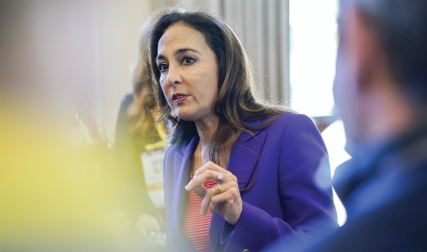Let It Fly
Kudos to DAM for featuring in the May/June issue three pages on Dartmouth’s ultimate Frisbee teams [“Big Picture” and “Campus”]. This is a club sport, which means the teams’ expenses are largely met by the students. We had the privilege of watching the women participate in two West Coast tournaments, and it was surprising in three aspects. First, ultimate Frisbee matches are as fast moving and unpredictable as a basketball game, although played on a soccer-sized field. Another unique aspect of the game is all alleged infractions are resolved by the players—no referees. The other surprising discovery was the old-fashioned, gung-ho spirit exhibited by the teams. These ardent but pleasant representatives of Dartmouth play all over the nation. When we saw them, Dartmouth was No. 1 in the national standings based on their tournament results.
Tom Russell ’61
Edmonds, Washington
EDITOR’S NOTE: In late May the women’s team, Princess Layout, won its first national title after losing only four regular season games.
Troubling Numbers
I was most interested in the chart on page 17 of your May/June issue showing the distribution of students by family income [“Campus”]. I had just read an article in the current issue of Harvard Magazine that analyzed the culture gap between coastal elites and America’s white working class and its impact on the recent presidential election. Though there are traditional criteria for ensuring race and gender diversity in the student body, class as defined by family income has not routinely been considered in the admissions process by our elite academies. Despite progress in racial and gender diversity, there has been an extreme and growing imbalance in class diversity, as indicated in the chart.
It was disheartening to see that Dartmouth has the highest percentage of students from families in the top 1 percent of the income scale and the second lowest percentage from families in the lowest 60 percent. Financial aid is helping to address this imbalance, but there continues to be an effective exclusion of lower-income students from these elite academies.
It is embarrassing that Dartmouth is, if you will, the “elitist of the elite” when compared to its sister Ivies. I hope this issue has attracted both administration and faculty attention, and that there will be a sincere effort at remediation.
William M. Colaiace ’59, DMS’60
Pawtucket, Rhode Island
I am dumbfounded as to why these percentages have been allowed to develop and puzzled about why you included them. Mostly, I’m appalled and deeply embarrassed.
Steve Shipps ’66
West Newbury, Massachusetts
I have become convinced that my philanthropic efforts are best directed toward efforts to level the playing field—to provide opportunity to the many deserving individuals who might otherwise not have it. Thus, as a supporter of the College, I was dismayed by your “Rich Student, Poor Student” infographic. Does the College see this as a problem? If so, has it identified the reasons for this and what is it doing to change the numbers?
Patrick Rutty ’88
Littleton, Colorado
Undocumented
“American Dreamer” [May/June] highlighted Dartmouth policy on undocumented students, which is to accept the academically qualified and fund them.
The upside of this policy is Dartmouth’s open arms. The downside is the possibility that undocumented students, illegally in the United States, will take admission preference over qualified American citizens and legal immigrants. Far-fetched? Maybe, but the process could grow significantly and end up being detrimental to Dartmouth. I hope Dartmouth will use its best foresight.
Brad Borden ’54
North Stonington, Connecticut
I concede that the U.S. immigration policies are in desperate need of a major overhaul and have been for at least 50 years, and that members of Congress from both parties have been a major stumbling block to
any reform. Contrary to the opinions
voiced by Oscar Cornejo ’17, it is not Mr. Trump’s policies, per se, that “threaten to tear more and more families apart,” but the decision to enforce the nation’s long-neglected immigration laws that poses the threat.
I was disappointed to read Conejo’s assertion that “our struggle is intimately tied to other movements, such as ‘Black Lives Matter,’ environmental justice and opposition to the Dakota Access Pipeline at Standing Rock.” The struggle facing undocumented immigrants is real and immediate, while the “Black Lives Matter” and Dakota Access Pipeline issues are of dubious merit, at best. What is environmental justice? That term needs some clarifying definition.
Cornejo might give serious thought to how he might maximize the benefit of his Dartmouth education by becoming documented versus railing against the enforcement of long-standing U.S. law, however painful that enforcement might be. As a documented immigrant, he might also be more successful in getting the laws changed.
M. Joseph McHugh ’60, Tu’61
Dallas
Resistance
I read with interest Christopher Wren’s article on President Emeritus James Wright’s recently published Enduring Vietnam and his visits to battlefields where Dartmouth graduates died, among them my roommate, P. Dennis Barger ’65 [“The Wright Stuff,” March/April]. A few years ago I contacted President Wright, and he kindly shared with me information about Dennis’ death. I write now to comment on Wren’s observation that more Americans died in Vietnam than were jailed for refusing to serve or who left the country. The generally accepted number of accused draft resisters exceeds 200,000. Additional thousands manipulated the system to avoid the military, and hundreds of thousands more protested the war. But the validity of our nation’s choice to fight in Vietnam and the damage to those who did or did not go involve more than just counting heads on each side of the pro-war/pro-peace line.
Those, like Dennis, who suffered or died because of Vietnam certainly merit, in Wren’s words, “respect and affection.” Johnson, McNamara, Nixon and Kissinger knew that the war was unwinnable, and yet for years they persisted in sending young people to be maimed and die. Some might say that Dennis and his peers sacrificed their lives for this country, but I would say that their lives were sacrificed on the altar of national pride and political opportunism.
The war resisters forced America to confront the folly of the war. If not for them, our government would have had the freedom to prolong the conflict, perhaps expanding it to North Vietnam. Our country owes the anti-war movement a debt of gratitude. It was America’s conscience, not a sideshow.
Lee Daneker ’65
San Miguel de Allende, Mexico
Too Much Trump
Taking my first spin through the May/June issue, I could not help quickly noting the theme so prevalent in our nation’s news media. They were, in order: a “Trump claim gets thrown under the bus” [“Campus”], “Trump’s policies threaten” [“American Dreamer”], “Trump’s campaign pitch to black voters was terrible” [“Race and Republicans”] and, slyly, your “Meryl, Overrated?” headline. If DAM keeps this up for eight years, the editorial staff and guest writers will be really frazzled! I suggest that we all take a deep breath. Smell the roses and live every day.
Chris Meyer ’66
Nahant, Massachusetts
Purportedly, President Trump’s electoral victory not only resulted from the previous 48-year decline in humanities majors but also should be culpable for any future downtrends [“Why We Need the Humanities,” March/April]. Not addressed was how Dartmouth’s neoliberal students—prior to the 2016 election—had been turned “away from reasoned debate, informed decision-making and inspiring rhetoric toward a politics of suspicion, insinuation and threat.” Students occupied Parkhurst Hall, verbally attacked fellow students in and around Baker Library before receiving tacit affirmation from the vice provost of student affairs, and defaced a “Blue Lives Matter” tribute.
I theorize that these student demonstrators most likely were not grounded in science and mathematics. Otherwise, they could have dismissed opposing sociopolitical stances on race and poverty with scholarly criticism.
The sciences champion true critical thinking, constantly challenging existing paradigms and subjecting participants to harsh yet objective peer review. Until non-science faculty and administrators shun emotive tribalism in favor of dispassionate debate, why we need the humanities remains an unanswered question for this English literature major.
Aloke K. Mandal ’85
Anaheim Hills, California
Perhaps I was the only reader to appreciate the irony in the paragraph citing Jeff Sharlet, who was quoted as follows: “Fundamentalists erase detail and flatten the world by insisting on one truth….It’s detail and nuance that make a democracy. That’s why the humanities matter.”
As conservative thinkers have argued for many years, a faculty dominated by one political and philosophical viewpoint threatens and impoverishes civil discourse in the academic community.
Jonathan T. Ford Sr. ’60
Estes Park, Colorado
Etc.
May/June is a superb issue. Really great pieces on today’s issues as they relate to Dartmouth students and alumni. Keep it up!
Gerald Garbacz ’58, Tu’65
Annapolis, Maryland
Great one!
Manuel Tarabay ’72
Geneva, Switzerland
DAM is one of the very best alumni magazines I have seen. Its strengths include excellent reporting of alumni achievements, interesting articles, attractive graphics, tasteful advertising, good humor, great photography.
My only criticism relates to DAM’s treatment of academic and intellectual activities at the College. I believe the magazine spends too much time on fun stuff and cutesy articles and not enough time portraying Dartmouth as an intellectual place. I see too many pictures and articles about students throwing Frisbees and jumping into ice-cold pools and not enough about the quiet thinkers and academic achievers.
A case in point is the omission of any mention about Dartmouth’s recent Rhodes scholar, Sarah Waltcher ’16, selected last November. No mention of arguably the most prestigious award a college student can win. Very disappointing. If you want to publish something of this sort, there is room to do it in any issue, let alone three issues. It’s a matter of priorities.
DAM is a very good magazine. It could be even better if it spent a little more time extolling academics and the achievements of the quiet thinkers.
Richard Hetke ’73
Hinsdale, Illinois
Brain Power
I applaud Adam Estoclet ’11 for writing and DAM for publishing “A Dark Hole” [January/February], an account of Estoclet’s experience after taking “a hit to the head.”
His situation is not uncommon. Although his injury occurred in Sweden, there are an estimated 3.8 million concussions in the United States per year in sporting activities. As many as 50 percent of them go unreported. What about multiple sub-concussions? A hockey player may never be diagnosed with a concussion during the year but may deliver and receive 1,000-plus hits to his head in a season. Immediate symptoms such as depression, fogginess, irritability, headaches, anxiety and impulse control issues may not subside. As I know all too well from my work with One Hit Away, if the brain is not healed properly, future complications such as Parkinson’s disease, dementia and chronic traumatic encephalopathy may result. Too many athletes do not realize the extent of their injuries until later in life. More of them and athletic trainers need to seek proven techniques for brain healing. Athletes and their families deserve that.
Darren A. CdeBaca ’82
Millbrae, California



